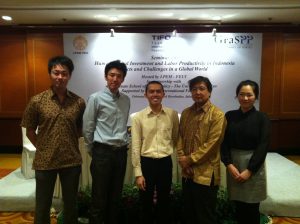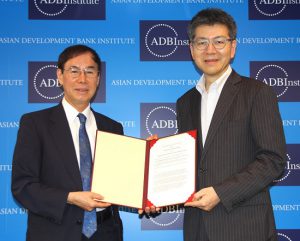This is a summary report of ADBI-GraSPP-University of Indonesia online event on “Infrastructure, Technology, and Finance for Sustainable and Inclusive Development in Asia beyond the Pandemic” on February 18 and 19, 2021.
GraSPP hosted this event jointly with Asian Development Bank Institute (ADBI) and Institute for Economic and Social Research, Faculty of Economics and Business, University of Indonesia (LPEM FEB UI) as policy dialogue under the Indonesia-Japan Policy Research Forum for Asia with the support of the Toshiba International Foundation (TIFO).
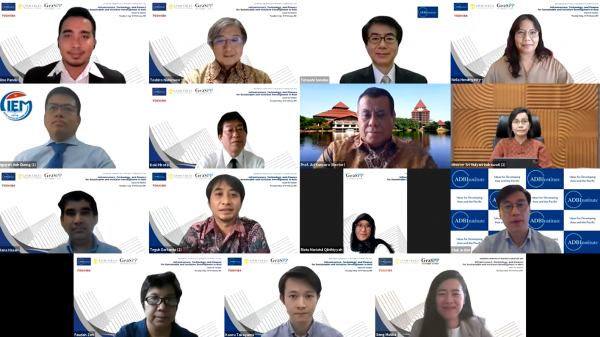
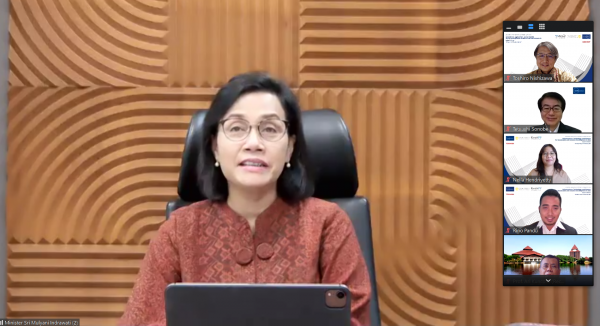
Dr. Sri Mulyani Indrawati, Minister of Finance, Republic of Indonesia
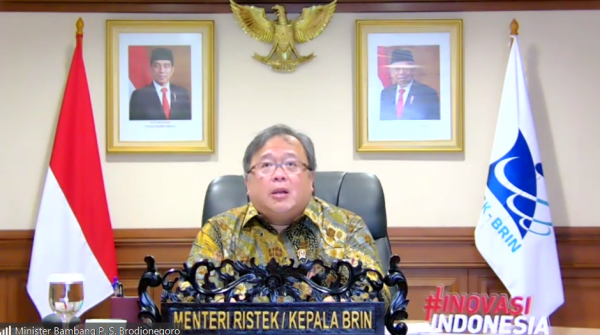
Dr. Bambang P. Brodjonegoro, Minister of Research and Technology, Republic of Indonesia
By Nella Sri Hendriyetty, Alexander Boden and Kaoru Takayama
Alexander Boden is a Capacity Building and Training Associate at ADBI and an alumnus at the University of Tokyo’s Graduate School of Public Policy (Class of 2020, Double Degree program with the Australian National University).
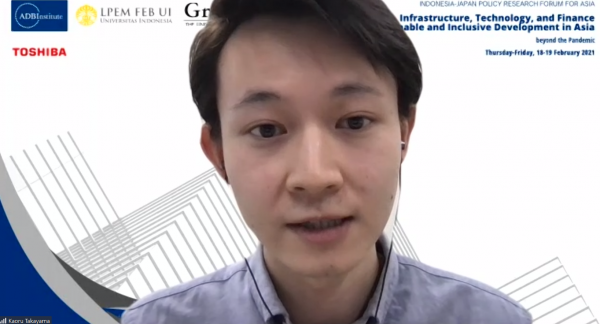
Kaoru Takayama is a first-year master’s student at the University of Tokyo’s Graduate School of Public Policy
Background
The pandemic is not over yet. We could have been better prepared and are now aware that there is no excuse for the lack of preparation for the future.
The COVID-19 pandemic reminds us of the importance of quality infrastructure with a particular emphasis on resilience as well as inclusiveness and sustainability. Technology has a great potential in achieving these goals.
The pandemic poses a multiplicity of challenges, not only health, but also economic, social and governance. As a result, there are huge demands for financial resources to address these challenges. The pandemic challenges require policy makers to allocate a limited amount of resources to alternative uses efficiently and effectively while maximizing the positive economic, social and developmental impacts. Moreover, in the aftermath of the pandemic, a greater sense of inclusiveness accompanied by a greater sense of security is required to ensure the post-pandemic recovery and to build a renewed dynamic path towards resilient and sustainable development in Asia.
Infrastructure can be viewed as technology network and thus may enable multiple sectors and stakeholders benefiting from infrastructure services provision. Good adoption of technology, including digital platform, may improve effectiveness of infrastructure services provision, for example, by enabling a tractable assessment of infrastructure services to help improve their efficiency and quality.
Amid pandemic concerns in February 2021, the Indonesia-Japan Policy Research Forum for Asia organizes a two day virtual workshop, comprising of interactive lectures and group discussions, by bringing together senior policy makers from Asian countries, who are responsible for designing and implementing policies for infrastructure development. The objective is to strengthen the capacity of officials in designing and implementing policies in providing infrastructure services. Workshop participants also included various stakeholders and such resources persons as experts from multilateral institutions, the private sector and academia.
Summary remarks
Dr. Nella Sri Hendriyetty, Senior Capacity Building and Training Economist of ADBI, Dr. Riatu Mariatul Qibthiyyah, Director of Faculty of Economics and Business, University of Indonesia, and Prof. Toshiro Nishizawa of the University of Tokyo’s Graduate School of Public Policy made summary remarks on behalf of the organizing committee as follows.
Dr. Nella Sri Hendriyetty noted the role that international organizations could play in providing guidance to developing countries for improving social infrastructure in the face of external shocks, such as pandemics and natural disasters. She also highlighted that while the private sector filled in a large demand for infrastructure finance, challenges remained in regulations, data protection, and management. She appreciated the workshop’s discussions and wished that participants continued to share ideas to generate solutions to the challenges we faced.
Dr. Riatu Mariatul Qibthiyyah echoed the points raised by Dr. Nella Sri Hendriyetty and underscored that the solutions would continue to be context specific. She raised the lack of collaboration between academia and industry as a potential issue and appreciated ADBI’s role to bridge the gap.
Prof. Toshiro Nishizawa noted three takeaways from the two-day virtual workshop. First, infrastructure investment should enhance resilience to adversity, on top of sustainability and inclusiveness, of the society by making good use of technology. Second, infrastructure investment should be promoted in parallel with investment in human capital. Third, financial resources for infrastructure development should be mobilized on the basis of proper risk-sharing, cost-benefit analysis, and long-term strategic planning. He concluded by reiterating the need to address the pandemic’s divisive effects on the society. He reminded the audience of the role of infrastructure in creating jobs for vulnerable segments of the society and pointed toward an idea to promote Micro, Small & Medium Enterprises’ innovation and competitiveness, which would be a focus for Indonesia-Japan Policy Research Forum next year. He thanked the organizing committee members for their joint dedication and expressed appreciation to the participants for their support and attendance.
About the Forum
The Indonesia-Japan Policy Research Forum for Asia is a collaboration between Asian Development Bank Institute (ADBI), Institute for Economic and Social Research, Faculty of Economics and Business, University of Indonesia (LPEM FEB UI) and the University of Tokyo’s Graduate School of Public Policy (GraSPP) with the support of the Toshiba International Foundation (TIFO), a public interest incorporated foundation. The original format of the Forum was a bilateral intellectual exchange between LPEM and its counterpart in Japan which was launched in 2004 with the support of TIFO. Since 2017, the Forum has become tripartite by forming an alliance with ADBI.
November 7-8, 2019 in Jakarta | “Indonesia-Japan Policy Research Forum for Asia: Financial and Technological Literacy for Sustainable and Inclusive Development in Asia”
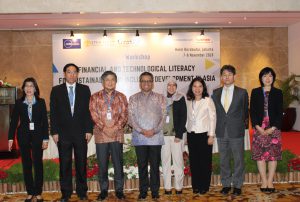
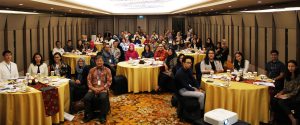
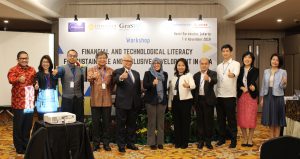
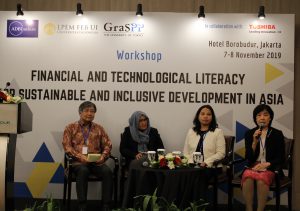
November 7-8, 2018 in Jakarta | “Indonesia-Japan Policy Research Forum: The Role of FinTech in Inclusive Growth in ASEAN Economies”
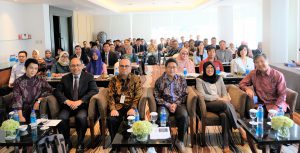
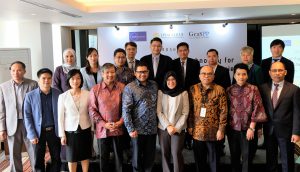
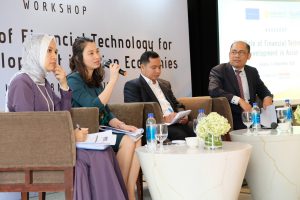
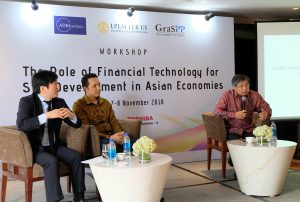
November 8-9, 2017 in Jakarta | “Innovative Approaches to SME and Entrepreneurial Financing for Enhanced Competitiveness”
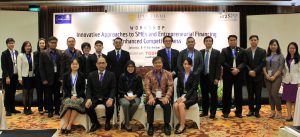
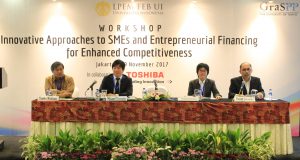
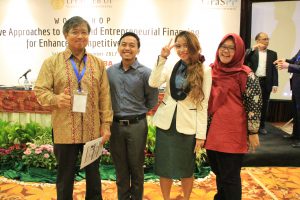
November 23, 2016 in Jakarta | “Emerging Researchers Forum between Indonesia and Japan—Partnership Opportunities for Enhancing Human Capital, Innovation and Competitiveness—Financial Inclusion and SME Development”
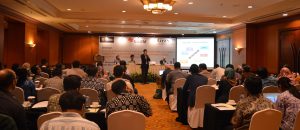
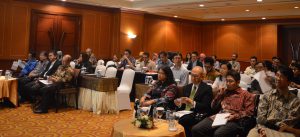
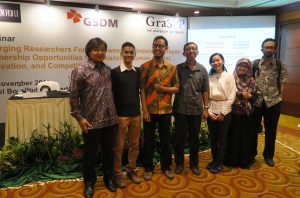
December 2, 2015 in Jakarta | “Emerging Researchers Forum between Indonesia and Japan—Partnership Opportunities for Enhancing Human Capital, Innovation, and Competitiveness”
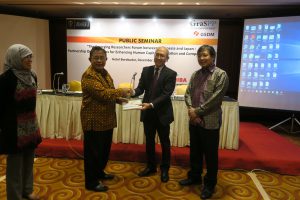
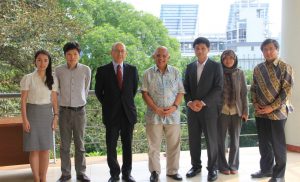
November 24, 2014 in Jakarta | “FDI for the Future: Human Capital, Innovation, and Competitiveness”
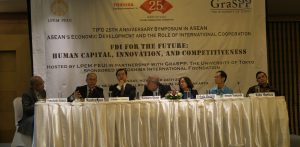
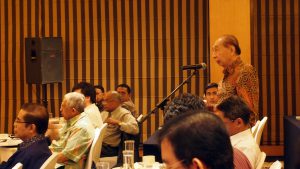
February 11, 2014 in Jakarta | “Human Capital Investment and Labor Productivity in Indonesia: Facts and Challenges in a Global World”
